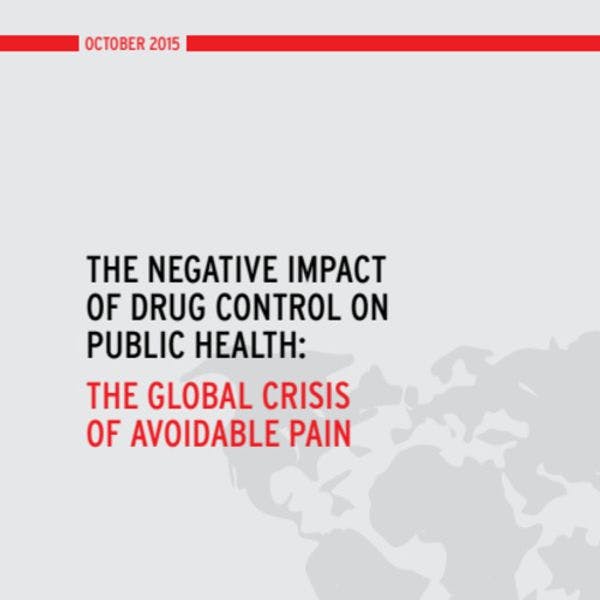L'impact négatif du contrôle des drogues sur la santé publique – Une crise mondiale de la douleur inutile
Selon la Commission Mondiale sur la Politique des Drogues, le système de contrôle international des drogues a attisé une crise mondiale d'accès inéquitable aux substances contrôlées, entraînant une douleur et une souffrance humaine inutile au niveau mondial. Pour en savoir plus, en anglais, veuillez lire les informations ci-dessous.
Abonnez-vous à l'Alerte mensuelle de l'IDPC pour recevoir des informations relatives à la politique des drogues.
The international drug control system is stoking a global crisis of inequitable access to controlled medicines. Of the global population, an estimated 5.5 billion have poor to nonexistent access to opioid analgesics, in particular morphine, resulting in the avoidable pain and suffering of people around the world. At the last estimate, 92 percent of the world’s supply of morphine was consumed by just 17 percent of the global population, that consumption primarily concentrated in the global north.
Terminal cancer patients, end-stage AIDS patients, and women in labor suffering from uncontrolled pain are among the key impacted groups, with the World Health Organization (WHO) estimating that tens of millions suffer from unrelieved pain annually due to a lack of access to controlled medicines. In addition, only a fraction of people globally who inject drugs are able to access controlled medicines for treating opioid dependence.
Under international drug control law and international human rights law, States have an obligation to ensure controlled medicines are made available to their populations; any restriction of access constitutes a violation of the right to health. Though a number of factors impose barriers to access, including weak healthcare systems and the lack of training of clinicians working on the ground, the international drug control system has been responsible for perpetuating the continual undersupply of controlled medicines.
This scarcity is due to the prioritization, by governments and UN bodies alike, of preventing the diversion of controlled substances for illicit purposes over ensuring access for medical and scientific needs. For example, both the International Narcotics Control Board (INCB) and United Nations Office on Drugs and Crime (UNODC) have a dual obligation to maintain a balance between preventing diversion and ensuring access, yet have historically favored the former. This has translated to the national level where some governments continually emphasize a criminal justice approach to drug control, rather than a public health one, all to the detriment of providing access to controlled medicines.
Keep up-to-date with drug policy developments by subscribing to the IDPC Monthly Alert.
